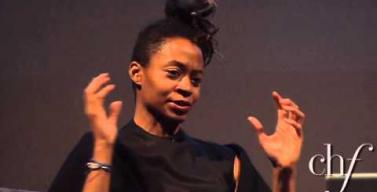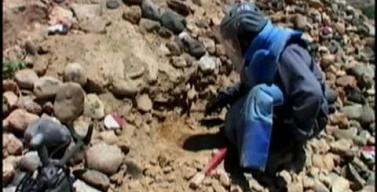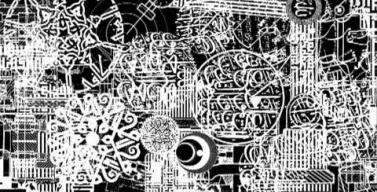HARDtalk speaks to one of Africa's greatest living writers, Ngugi Wa Thiong'o. Tipped to win the Nobel prize for literature, he decided years ago not to write novels in English but in Gikuyu, his...
AFRICAN VOICES: LAWYER FIGHTS "WIDOW SEX" TRADITION
March 21, 2013 - MALAWI - Lawyer and human rights activist Seodi White has long been an outspoken campaigner for gender justice in Malawi, a country where half its women are married before the age of 18.
As the head of the Malawian chapter of Women in Law in Southern Africa (WLSA), White is at the forefront of the battle against inequality, traveling around the country to promote education and to stop young girls from giving up on school and marrying in their early teens. But the prominent activist, who is herself the mother of a young daughter, is not only concerned with the rights of teenage girls. She is also targeting cultural practices that harm older, vulnerable women in Malawi. One such custom, prevalent in the southern tip of the landlocked country, is "widow cleansing," a traditional practice in which a widow is expected to have sexual relations, "in order to cleanse her," explains White.
"There is a belief that if she does not sleep with someone, the spirit of her dead husband will come and visit upon her and her family will be cursed," she adds.
White says that the practice is not forced upon widows. Instead, she says, the tradition has become so much part of the culture that widows themselves call for it.
"It's a mindset issue," says White. "Even the widows, they've told me, 'I don't want to die, I don't want a curse to come to my husband.' They cry to be cleansed."
White says the tradition, which involves unprotected sex, thus increasing the chances of HIV infection, has been turned into a business.
"There are professional cleansers in villages," says White. She says these men charge widows up to $50 for their services, in a country where the minimum wage is less than $1 per day.
In recent times, there have been several initiatives by White's NGO, as well as other groups, to try and change the situation. One effort is to target the "professional cleansers" in attempt to get them to change their ways.
"Some have actually come out in the open and said: 'I used to be a commercial cleanser, I'm HIV positive, I've stopped, it's not fine and I go village by village telling other commercial cleansers to stop this, it's a risky taboo behavior.'"
Related Podcasts
|
|
Unsettling and provocative, Kara Walker's art takes hold. With room-size assemblages of black cut-paper silhouettes, eerie video animations, and a rich body of paintings, prints, and drawings—all... |
|
United Nations, New York, October 2009 - War-torn Afghanistan is an unlikely tourist destination, but there is hope that its World Heritage sites and the first national park can attract tourists... |
Mounir Fatmi's oeuvre has often displayed a fraught relationship to architecture, addressing the dystopic effects of the modernist experiment or arrogant contemporary displays of power and... |




